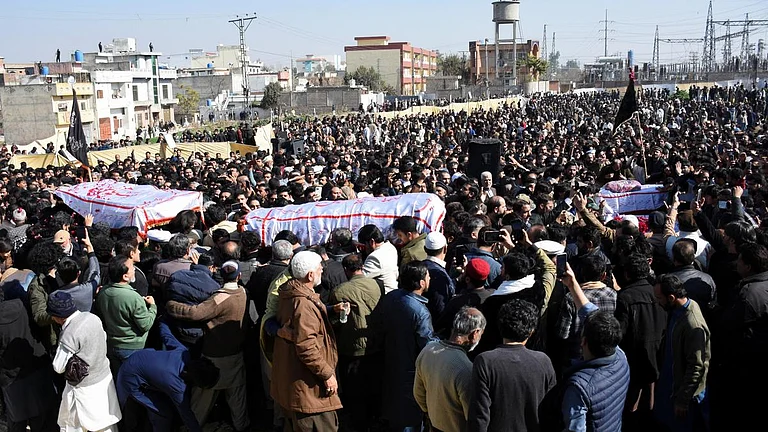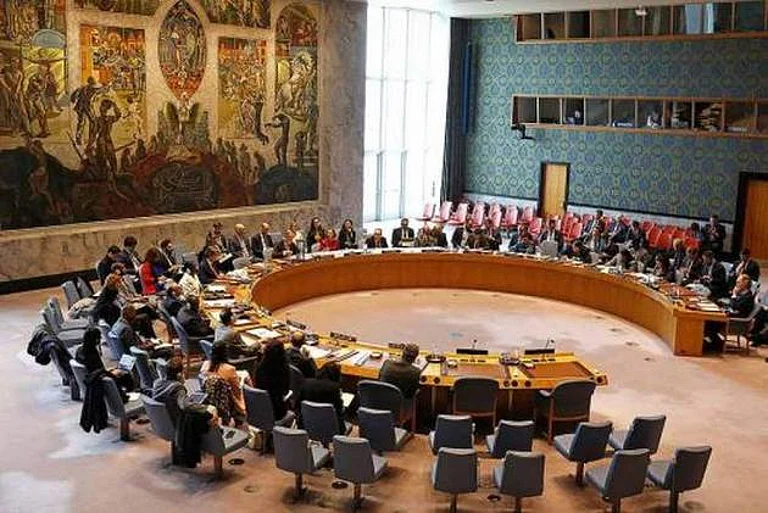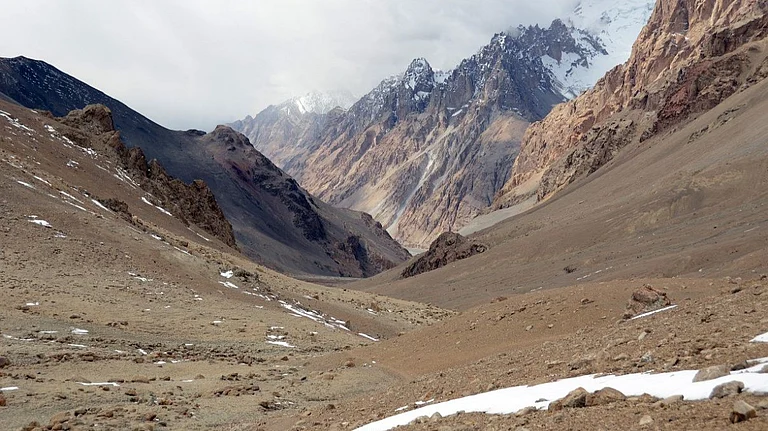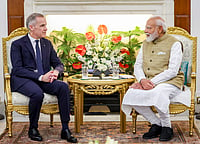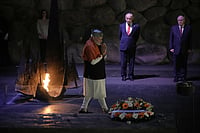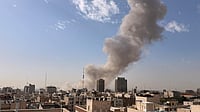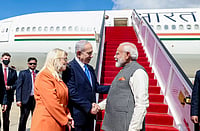The five-day agitation in Pakistan Occupied Kashmir (PoK) is not a political agitation demanding azadi or challenging its 1947 merger with Pakistan. It was triggered by high food prices and exorbitant electricity bills. Protesters want food subsidies from the federal government in Islamabad.
But with electioneering at fever pitch in India, the BJP wants to make sure that every box is ticked. Senior ministers have waded in to exploit the situation and bring in nationalism to the election mix with the emphatic assertion that PoK is "occupied’’ territory and belongs to India.
It is not some crazy generals making the pitch at television studios but no less a person than foreign minister Subrahmanyam Jaishankar, home minister Amit Shah as well as defence minister Rajnath Singh are saying so. Are they serious or is this just another election ploy that will vanish after results are declared on June 4?
It is a fact that the official position has always been that the whole of Jammu and Kashmir, including PoK belongs to India. There was a unanimous parliamentary resolution of 1992 on this. The BJP government has for years said privately that this would be their approach whenever discussions start with Pakistan. During foreign secretary level dialogues in the past this was always stated. It has now come out in the open according to former diplomats familiar with the issue. Certainly, during negotiations every side puts out a maximalist position. But will India try to change the Line of Control (LoC) and attempt to change international boundary after over 70-years. It will go against what Prime Minister Modi's advice to Vladimir Putin on Ukraine, that this is not the era for war. Or is this the Modi’s government’s opening gambit and it is thinking of taking a cue from Netanyahu’s playbook at a time when Pakistan is at its weakest? Will China, Pakistan’s all-weather friends remain a silent spectator if India attempts such a misadventure?
The protests are now over with Prime Minister Shehbaz Sharif conceding the demand for subsidies. He announced a grant of 24 billion rupees, roughly $86 million to help meet subsidies for both wheat and electricity. The price of wheat flour was reduced by PKR 1100 per 40 kg bag, from PKR 3100 to PKR 2000.
Organisers of the protests from civil society groups have called for a general strike over the killing of three protestors by the Pakistani Rangers called in to quell the demonstration. People who had marched from rural areas to Muzaffarabad, the capital of PoK, have now dispersed. But anger continues to simmer, and they want compensation for the families of the dead.
While Pakistan does make what it terms as Indian -held Kashmir a major foreign policy issue, PoK as a frontier region has long been neglected. Besides agriculture and tourism there is very little development in the area. The general pain that people across Pakistan are undergoing since the drastic downturn in the economy is also affecting the people of the region. What is more with PoK generating nearly 3050 megawatts of electricity, the people must not only undergo frequent power cuts as electricity is taken off to redistribute to other provinces in Pakistan.
The area's demand for electricity is a mere 350 megawatts and that too is very high and not affordable. Since nearly a year back people have been gathering outside urban centers and demanding lower rates for power. Many have refused to pay and are publicly burning electricity bills. People are demanding that the electricity costs for consumers in PoK should be slashed for them as hydel power is generated from the area's natural resources. Government has cracked down on the leaders of this movement and typically dubbed them as terrorists.
Civil society groups in the forefront of the agitation have complaints about the enormous perks that are extended from scarce resources of the government to political leaders and bureaucracy. Of the 228 billion Pakistan rupees of the annual budget for PoK, nearly 200 billion is spent on salary. The population is just over 4 million, but its literacy levels are higher than most other regions of the country with a literacy rate of 74 percent. Agriculture is the main occupation and money sent back by residents working abroad has sustained thousands of people. There is no investment in industry by the government here.
The Prime Minister of PoK, is Chaudary Anwar-ul Haq, he presides over a 40-member cabinet, with support from Pakistan People’s Party, Pakistan Muslim League and Pakistan Tehreek-e-Insaf Forward Bloc that opposes Imran Khan. Ironically the PoK assembly has a strength of 53, of which 45 are directly elected from general seats and eight are reserved. For a population of just four million spread over ten districts, one wonders what work the ministers do. Civil society wants the government and the bloated bureaucracy to be slashed.
Now that the main agitation is over things will go back to what they were earlier. But people are now much more aware and want Islamabad to spend more on the development of PoK. As independent Pakistani journalist Syed Muzamil Shah has warned that Islamabad needs to wake up and start treating PoK not as a colony but as a part of Pakistan. The region acceded to Pakistan soon after partition and surrendered much of its independence to the federal government.









